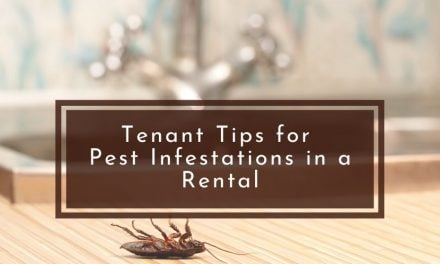 Real estate is one of the few assets that will remain low-risk for decades to come. In fact, as the human population keeps snowballing into unsustainable figures, real estate will only be more scarce and in greater demand.
Real estate is one of the few assets that will remain low-risk for decades to come. In fact, as the human population keeps snowballing into unsustainable figures, real estate will only be more scarce and in greater demand.
As an investor, it’s easy to realize the upside to investing in real estate, especially in the Internet age where you can do transactions online.
But handpicking the right real estate for either a rental property or a buy-and-hold strategy is no cakewalk. There are numerous factors at play, each one meriting careful consideration.
To simplify the whole process and give you a good starting point, read on further as we discuss six ways to succeed as a real estate investor.
#1 Narrow Down Your Location
Rookies tend to get too wild when it comes to possible locations they can buy real estate in. Too wide of a perimeter can simply create more problems for you since you have more properties to look at, each one having its own price and structural attributes.
Narrow down your choices to a specific state, city, or, better yet, neighborhood. Prior to forking over a down payment and putting yourself knee-deep in debt from a 30-year mortgage, make sure you’ve vetted the location.
Does it have convenient access to public facilities, such as supermarkets, schools, and hospitals? Is the crime rate low? Is the neighborhood open and respectful to all demographics and lifestyles?
You also need to consider your personal proximity to the property, as it will play a role in your management style. If you live out of the area, you will need to consider a local property management company in order to find success as a long-distance landlord.
#2 Know What it Means From a Taxpayer’s Standpoint
Governments want real estate investors to offer housing to its citizens otherwise it falls on their lap to provide it.
To encourage private investors to do just that, the U.S. government offers huge tax benefits to private real estate investments. Perhaps the biggest tax benefit is what’s known as a depreciation write-off. When you purchase real estate for investing purposes, you can write off the property’s depreciation as a deductible.
Furthermore, the Internal Revenue Service looks at your real estate purchase as a business move so you are also eligible for the Necessary and Ordinary deductibles that business owners claim, such as maintenance costs and interest rates on their office building lease.
#3 Plan For the Long Term
A close look at your financial goals is important as this gives you a clear idea of what type of investments to look for. The property you choose should reflect the long-term goals you’ve identified. If you’re looking for consistent income coming in month after month, a rental property is a good fit.
On the other hand, flipping fixer-uppers is a good option for people who are looking to generate quick short-term gains and then move onto the next investment. If you are uncertain of how to clearly define your financial goals, work with a financial advisor.
#4 Consider Wholesale Real Estate
Investing in properties is, in many ways, similar to investing in stocks – you buy low and you sell high. If you’re a smart stock investor, you wouldn’t want to buy a basket of them at their prime and then hold onto them for a couple of years.
Instead, buy the asset when it’s hovering around a low point and when market participants are fearful. It’s when people are bearish that you are more likely to find better deals.
Of course, this doesn’t mean you should buy the first cheap housing you can find online. Maximize your ROI by looking for wholesale properties that are being sold at cost. While these properties cost money to restore and maintain, the potential ROI easily outweighs the costs.
#5 Look at Your Credit Score
You can buy houses for cash, but most investors need financial assistance to get their first property. Borrowing money from banks entails being screened for your creditworthiness.
If you have low or no credit score, you’ll either get turned away or be offered ridiculously high interest rates on your mortgage. Work on improving your credit score first before approaching banks and private lenders. Pay off any existing debt, such as credit cards and student loans.
#6 Follow the One Percent Rule
If you’re buying rental property, the one percent rule can help you decide if the property is worth the cost that you pay upfront. The one percent rule simply means that the rental property you purchase should generate at least one percent of the cost you paid for it per month before expenses.
If you bought a $250,000 co-op housing, for instance, it should be able to generate $2,500 per month otherwise it’s not worth it to buy the property since any profits generated will simply be eaten away by value depreciation and maintenance costs.
Final Thoughts
Once you’ve got the data, it’s now time to go online and explore the options you have, based on the filters you’ve identified. Remember, real estate investing is a huge financial commitment; approach it wisely.
What are your favorite tips to follow when searching for real estate investment opportunities?
About the Author
 I’m Rick and my cup of tea is writing. As to my keen interest in the real estate market and finances, I share my thoughts and opinions on these matters. Through my writing I hope to inspire people to focus more on growing their success towards creating financial freedom.
I’m Rick and my cup of tea is writing. As to my keen interest in the real estate market and finances, I share my thoughts and opinions on these matters. Through my writing I hope to inspire people to focus more on growing their success towards creating financial freedom.





